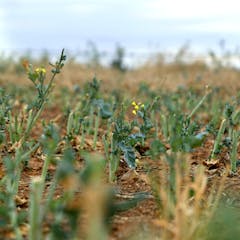
Articles on Cotton
Displaying 1 - 20 of 26 articles

Next time you do your laundry, think like an astronaut – wash your clothes as little as possible.

Cotton is one of the world’s largest crops and is harvested with large, heavy machines. Robotic harvesting could yield higher-quality cotton with less damage to plants and soil.

Beatrix Potter’s silence concerning her sources means the Brer Rabbit folktales that helped create her stories are passed over without acknowledgement or celebration.

The fashion industry is responsible for around 5% of global greenhouse gas emissions. It’s high time global fashion brands invest in greener alternatives.

The barriers and benefits to reviving the UK textile industry.

Worsening droughts and flooding likely threaten the future of cotton farming – by far the most important crop in the basin.

Western fashion, laundering and style reflected the racialized politics dramatically shaped by profound global transformations bound up with slavery, colonialism and modernization.

Plant breeding, informed by genetic analysis, could be critical to the future of one of the world’s oldest crops.

From fibre to fabric. The process of making textiles has been important to humans for almost 35,000 years.

Born in Blackness by Howard W. French is a towering work. It argues that, because of gold and slavery, Africa is central to creating the modern world.

GM proponents say the technology leads to better crop yields and may solve food shortages and reduce pests. Opponents say GM is a threat to the environment and humans. So where does the truth lie?

Geographers are documenting slave-built infrastructure, from railroads to ports, in use today. Such work could influence the reparations debate by showing how slavery still props up the US economy.

Black Friday sales reveal fast fashion extremes. But how does it affect the planet?

Burkina Faso’s genetically modified cotton success narrative was built on studies with methodological problems.

As the American Civil War interrupted cotton production, plantation owners looked to the new colony of Queensland.

While natural fibre textiles like cotton have generated an environmentally friendly reputation in recent years they might be just as bad as microplastic textiles like polyester and Nylon.

Knee-jerk responses to water insecurity won’t fix the basin. The harder and longer path is delivering real water reform, including transparent water planning enshrined in law.

Crisco’s main ingredient, cottonseed oil, had a bad rap. So marketers decided to focus on the ‘purity’ of factory food processing – a successful strategy that other brands would mimic.

A new clothing recycling process can counter the environmental costs of fast fashion.

Consumers are only benefitting from cheap clothes at considerable cost to the environment and by exploitation of a poor, vulnerable garment workers.
